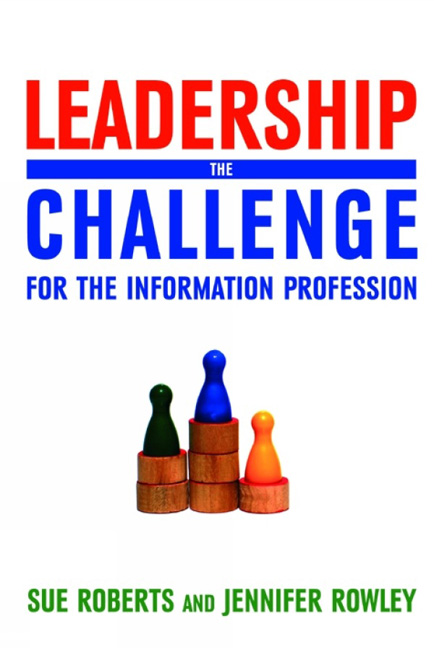7 - Leadership development
Published online by Cambridge University Press: 08 June 2018
Summary
Learning objectives
After reading this chapter you should be able to:
☑appreciate the need for investment in leadership development, particularly in a LIS context
☑understand the diversity of ways in which individuals learn
☑understand the different models and theories associated with leadership development approaches
☑understand the benefits of coaching and mentoring in this context
☑critically assess leadership programmes and their value
☑begin to consider applying these approaches to leadership development for yourself and for others
☑understand the concept of the learning organization.
Introduction
Developing leadership potential and capacity across the library and information sector has been touched on throughout this book. This chapter takes an in-depth, detailed and holistic look at leadership development primarily because we believe it is a fundamental consideration for library organizations, managers and information professionals at all levels. The chapter begins by asking why leadership development is so important; it then moves on to explore the diversity of ways in which individuals learn, drawing on Kolb's learning cycle theory, Honey and Mumford's learning styles and Armstrong's theory of multiple intelligences. Models and theories of leadership development are illustrated, including a focus on coaching and mentoring within the context of building leadership capacity. Leadership development programmes for the library and information profession are explored and evaluated in some detail, with specific examples provided to illustrate approaches and impact. The chapter then moves on to consider approaches to leadership development for ourselves as individuals, and for others. The chapter ends by introducing the concept of the learning organization and what this means for libraries and leadership development.
Why leadership development?
In Chapter 1 we described the underlying philosophy of this book, highlighting that learning must be at the heart of what we do as leaders and future leaders. We also stressed that we must spend time on leadership development from the start of our careers and at whatever stage. Irrespective of role, leaders should be striving to improve practice and to learn from others. As leaders we must also think about how our staff can improve, develop and deploy their leadership abilities.
- Type
- Chapter
- Information
- LeadershipThe challenge for the information profession, pp. 177 - 208Publisher: FacetPrint publication year: 2008



